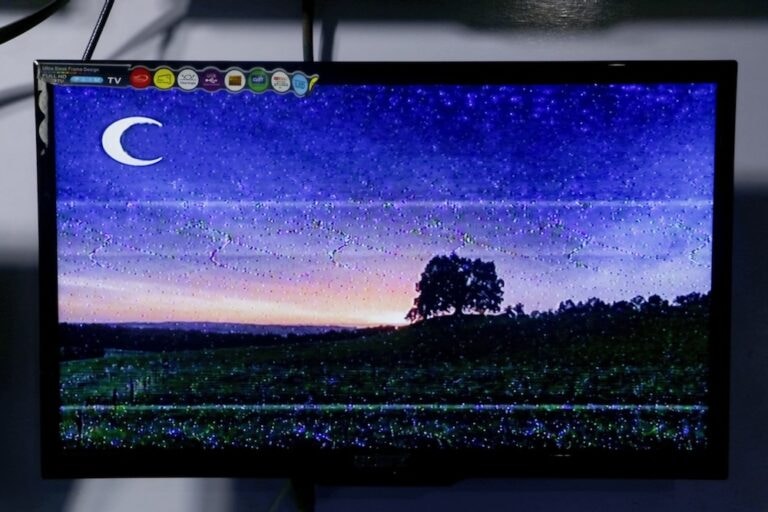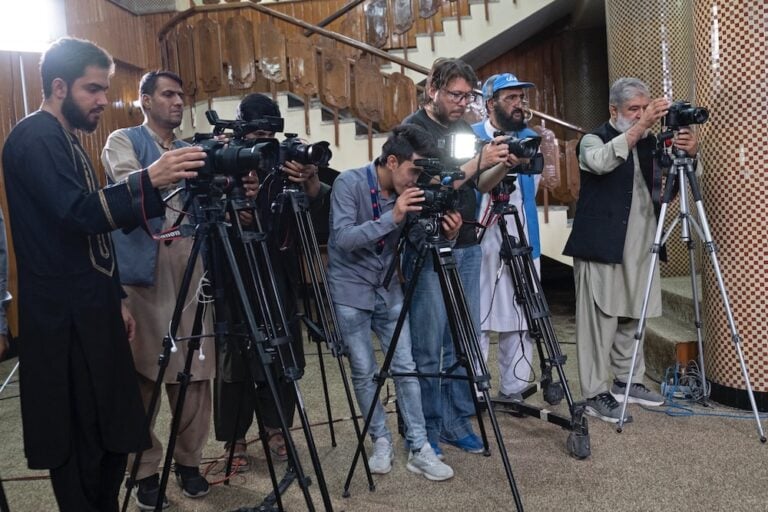The draft media law has been moving toward parliament with little or no formal opportunity for civil society to comment.
UPDATE: Draft media law slowed, but not stopped (CPJ, 17 July 2012)
(Human Rights Watch/IFEX) – New York, July 3, 2012 – The Afghan government should withdraw a draft media law that would expand government control over the media and chill free speech, Human Rights Watch said today. The draft law raises serious questions about President Hamid Karzai’s commitment to freedom of expression.
The proposed law, which would replace the 2009 media law, was recently circulated by the Ministry of Information and Culture to other government bodies for comment before it goes to parliament. It would greatly increase government control over the media by the information and culture minister, deputy ministers, and other officials within a complex set of regulatory bodies. The minister would be director of the High Media Council, which would have expanded powers to set policies and modify implementation of laws governing the media and to influence the composition and budgets of all other media oversight bodies.
“Press freedom has been one of Afghanistan’s most important success stories since 2001,” said Brad Adams, Asia director at Human Rights Watch. “The Afghan government should be acting to solidify media gains, not seeking to placate forces hostile to free expression.”
Unlike the 2009 law, which was passed by parliament after extensive discussions with journalists and human rights groups, the draft media law has been moving toward parliament with little or no formal opportunity for civil society to comment, Human Rights Watch said. Afghan human rights activists have raised serious concerns about the impact the law would have on media freedom in the country.
A number of provisions in the draft law would undermine free expression, Human Rights Watch said. It would reduce the number of journalists on the nongovernmental Mass Media Commission, curtailing the current role of experienced and independent journalists in providing media oversight. And it would remove several of the commission’s key functions, including reviewing complaints and violations, and instead creating a powerful new Media Violation Assessments Commission controlled by government representatives.
The draft law would establish a costly and unnecessary new system of prosecutors and courts specifically to bring and hear civil cases regarding media abuses. Broadcasting foreign programming would be restricted. The law would create civil sanctions for a long new list of media violations – vaguely defined acts ranging from changing bylaws to illegally broadcasting foreign programs.
Even the word choice of media outlets would be controlled by the government, Human Rights Watch said. Print media and websites would be required to observe a “guideline of phraseology and orthography which has been determined by an authorized committee according to an approved procedure by a combined board of High Media Council, High Council of Ministry of Higher Education, Academic Council of Ministry of Education, and High Council of Academy of Sciences of Afghanistan.”
The draft media law is the latest threat to the rights to freedom of expression and association and access to information in Afghanistan, Human Rights Watch said. The Afghan government has increasingly taken actions against journalists that undercut free speech. Examples include a government statement in March 2012 personally attacking a Wall Street Journal reporter for writing an article alleging Afghan military complicity in drug smuggling, the detention in April of a Noorin television journalist following complaints by government officials, and the attorney general’s investigation of Pajhwok news agency following a May article alleging bribery of members of parliament.
Human Rights Watch said that the 2009 law could be improved, including by revising overly broad and vague limits on speech, particularly relating to religion, and giving greater independence to government-sponsored media. The proposed law, however, leaves all of these restrictions in place while creating a new set of barriers to free speech, and should be withdrawn.
“Journalists are the canary in the coal mine in Afghanistan,” Adams said. “Afghan journalists have bravely held the government accountable in key areas such as corruption and human rights. President Karzai should openly oppose any legislation that curbs media freedom.”


